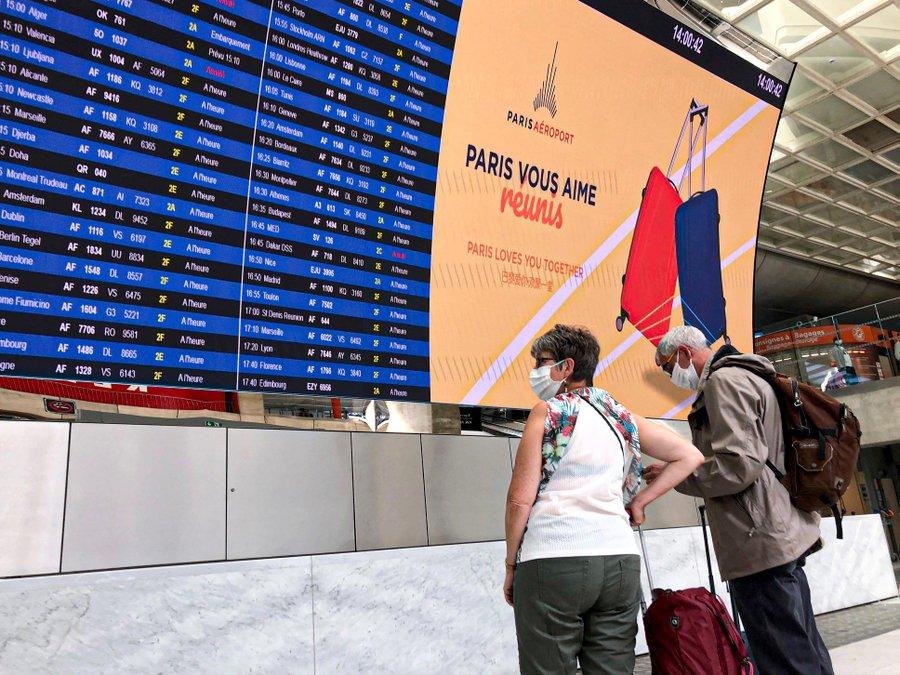Eurocontrol Cuts Traffic Forecasts, Sees Bigger Industry Loss

PARIS—Eurocontrol has cut its traffic forecast, blaming the uncoordinated response to COVID-19 travel restrictions among European countries.
The organization warned that the region’s airlines, airports and ANSPs could see a loss of revenues of €140 billion ($166 billion) for 2020, up from the €110 billion loss it predicted in April.
Eurocontrol is now predicting the total number of flights in Europe will be down 55%—a decrease of 6 million flights compared with 2019. The organization forecast a reduction of an additional 1 million flights—compared with what it had previously predicted—blaming a lack of coordination among European countries on managing the COVID-19 pandemic and its permutations for air travel.
Eurocontrol’s new “Current Status Scenario,” which sets out estimates through to February 2021, makes four assumptions: states will remain uncoordinated in their response to cross-border air travel; leisure and business passenger demand will remain extremely low; airlines will further reduce capacity in response to the collapse in forward bookings; and the restoration of inter-continental operations will remain limited.
“We’re going backwards now and it’s really worrying for the entire industry,” Eurocontrol director general Eamonn Brennan said. “There’s a lack of coordination between states on how to manage air travel despite good guidance from EASA and ECDC; there’s a lot of confusion and very little passenger confidence and of course outbreaks of COVID-19 are picking up across Europe.”
Brennan warned the situation could deteriorate further if states continue to impose blanket restrictions and quarantine measures. “This approach is killing the travel and tourism industry,” Brennan said.
Brennan also said the forecasts included in the scenario could improve if states coordinated on how best to handle air travel through harmonized testing and common epidemiological assessment criteria.
“That would give more predictability for passengers, airports and airlines,” Brennan said. “We welcome the European Commission (EC) proposals for harmonization and encourage all parties to adopt them.”
Earlier in September the EC set out a proposal for a traffic light color-coded map showing risk levels in different countries based on weekly COVID-19 infection data provided by member states as well as a common framework for managing travelers from high-risk areas. Currently some countries impose quarantine requirements on arrivals from high-risk zones while others require a COVID-19 test.
“Unilateral measures have resulted in significant disruptions,” the EC said at the time.
Eurocontrol’s previous Draft Traffic Scenarios published in April was based on a “Coordinated Measures Scenario.” The organization’s forecast proved accurate from April-August, predicting a gradual recovery from traffic 89% lower than 2019 in April to 50% lower in August. That scenario was correct to within one percentage point per month and predicted 5 million fewer flights. Eurocontrol predicted a gradual recovery potentially continuing for the rest of 2020 if the trend remained positive, with the restoration of some inter-continental operations.
“However, in response to COVID-19 outbreaks breakouts across Europe since mid-August, states have been imposing individual and uncoordinated national restrictions, quarantine requirements and testing measures, which are primarily in accordance with national epidemiological assessments and national health measures,” Eurocontrol said. Such measures were often announced with short notice, and the uncoordinated approach eroded passenger confidence, the organization noted.
In its latest weekly traffic update, Eurocontrol said there were 483 fewer flights a day on average in the week beginning Sept. 7, compared with the previous week, with an average of 16,286 flights a day, equating to 47% of 2019 traffic.
